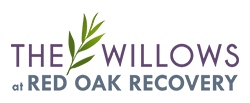There are many parts to a recovery program for substance use disorder and addiction. As a result, no one type of counseling or therapy works best for everyone. In fact, with treatment for drug and alcohol abuse, customization is critical. For your treatment program to work well for you, it must fulfill your individual needs. For most clients in recovery, this means undergoing different types of therapy simultaneously. A few of the more beneficial ones include group counseling, psychotherapy, and a 12-step approach. If you’re ready to learn about the benefits of individualized counseling services, reach out to The Willows at Red Oak today at 855.773.0614.
Group Counseling for Recovery
If your recovery team recommends group counseling, this means you’ll attend meetings with peers who are facing the same challenges as yourself. A group counseling session such as this is moderated by a licensed clinician, usually a psychiatrist. This medical professional will guide the meeting to keep the topic on track and allow everyone to participate as much as they feel comfortable doing.
Group counseling may cover many topics, including:
- Definition and identification of triggers
- Self-care
- Gratitude
- Sharing of resources
- Changing unhealthy habits
A group counseling session has several benefits. Primarily, it’s an excellent way to help clients learn to trust and rely on other people. Members of a group share their experiences and learn from one another. They lean on each other for support and give support back when needed. This type of counseling for recovery also educates clients on the psychology behind addiction and gives them alternatives to relapse.
Group counseling is an excellent addition to many treatment programs for substance use disorder and is supplemental to other parts of the care plan.
Addiction Recovery and Psychotherapy
Psychotherapy is a more clinical name for talk therapy. This type of counseling usually takes place one-on-one with a trained clinician, such as a psychologist. During psychotherapy, you may learn how to reframe negative thoughts in more positive and realistic ways. Many who struggle with addiction view the world through stark black and white, with no shades of gray. When something good happens, it’s the best thing ever. But if a minor setback occurs, it’s the end of the world. This type of thinking is called a cognitive distortion, and it can contribute to feelings of hopelessness and doom.
By engaging in psychotherapy with your clinician, you may gain a more realistic view of how the world works. You’ll learn that while bad things happen, they don’t mean you’ll never be happy again. Learning to handle thoughts that sabotage you is the main objective in psychotherapy, so this type of counseling is a reliable part of any recovery plan.
Counseling as Part of the 12-Steps
A 12-step program is beneficial to those in treatment because it breaks the recovery process down into 12 doable steps. There’s a defined beginning, middle, and end, which makes life feel much more manageable. Clients who work a 12-step program learn how to rely on their own higher power for success. They discover that, while they’ve made mistakes in the past, these mistakes don’t define who they are. Anyone can change for the better and stay changed by working through a 12-step program for addiction recovery.
Contact The Willows at Red Oak Recovery
Young women who struggle with addiction and mental wellness issues may contact The Willows at Red Oak Recovery in North Carolina. As a client in recovery with us, you’ll have time to heal. Our 90-day residential treatment program offers a variety of therapies that lets us design a recovery plan that works for you. Call us today at 855.773.0614 for enrollment information, or visit us online to learn about all The Willows at Red Oak Recovery has to offer you or your loved one.




